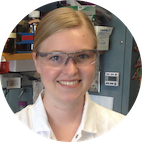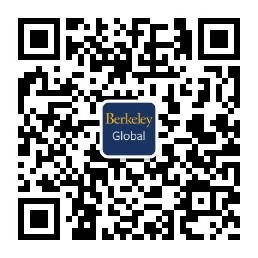
The immune system plays the crucial role of battling infection and cancer in the body. As a defense system, it must recognize and distinguish between what is foreign and what is self. Examine the basic principles of immunology, and study the tissues and cells that make up the immune system. Understand the structure and function of immunoglobulins, and investigate the nature of their interactions with antigens. Learn to discuss biotherapeutics, cancer and AIDS from an informed standpoint.
Prerequisites: One year of college-level general biology for majors
Fall 2024 enrollment opens on June 17!
Departmental contact for academic questions:

“I took Immunology and Current Topics in the Biosciences, which were both very informative, useful and enjoyable. They were structured much like you would expect in a classroom-based course with new material and homework for each lesson, along with quizzes and final exams or projects. The courses were user-friendly and included a variety of learning materials. Instructors were very responsive to questions and provided helpful feedback on all assignments. It was convenient to learn the material and submit assignments from home—or the coffee shop, library, airport terminal or wherever life dictated at the time.”
Live Online Live Online courses provide an interactive learning experience with scheduled synchronous online sessions held via Zoom video conferencing (Pacific Time). Learn more about the Live Online format. Online, Start Anytime Continuous enrollment course begins when you enroll. You have a minimum of 90 days and a maximum of 180 days to complete the course. Online, Fixed Date Enroll in this course by its start date and complete it by its specified end date. There are no live sessions, but plenty of opportunities to collaborate with your classmates and instructor. Classroom Take classes in-person at one of our buildings or partner locations.
All of our courses are taught in English. If English is not your first language, please use the following test scores as guides in order to be successful:
Note: You do not need to submit test scores.
1995 University Ave., Suite 130
Berkeley, CA 94704-7000

The University of California, Berkeley, is accredited by the Western Association of Schools and Colleges (WASC). UC Berkeley Extension—like all other UC Berkeley schools, colleges and departments—is accredited by WASC through the University.
Copyright © UC Regents

By clicking “Accept All Cookies,” I agree to permit this website to share my information, including a device identifier and my browsing history on this site, with selected partners, including Google, Meta/Facebook and others, to enhance my browsing experience and to ensure that marketing communications are targeted to my needs in accordance with our Cookie Policy and our Privacy Policy.
For security reasons and the protection of your personal information, your session will time out due to a period of inactivity in minute(s) and second(s). Click Extend My Session to continue. For security reasons and the protection of your personal information, your session timed out after a period of inactivity. You will be redirected to the home page.
Extend My Session OKDr. Mohamed has been a biomedical science educator and scientist for two decades. He is experienced in different modes of learning and education. His scientific experience spans multiple fields including microbiology, cell biology, molecular biology, immunopharmacology, immunohematology, biochemistry, cancer, and neuroscience. He has worked at a number of U.S. institutions and has been particularly fascinated with the improvement of pedagogy and Science, technology, engineering, and mathematics (STEM) education for undergraduate, graduate, and professional students. Dr. Mohamed loves to interact with his students on a daily basis and adopts an open-door policy. Dr. Mohamed has been active at different scientific organizations and societies. His interests include volunteerism and making sure that scientific and educational opportunities are accessible to underrepresented students and the general population. He believes that science should always be both accessible and understandable!
Close dialogAmy Morgan, Ph.D., earned her bachelor’s in genetics, master’s in cell biology and Ph.D. in immunology, the latter from UC Berkeley with a dissertation on development of immune regulation and self-tolerance. She has applied her research knowledge into using cell transplantation to treat diseases such as Parkinson’s and type 1 diabetes, as well as determining key elements in optimizing immune responses to vaccines for such deadly diseases as meningitis. Morgan’s area of interest is in understanding what triggers autoimmune diseases and how the immune system can be inactivated (immune tolerance) as a means to treat such diseases. She has been an instructor at UC Berkeley Extension for more than 20 years, and currently teaches Immunology both online and in the classroom.
Close dialogAmy Morgan, Ph.D., earned her bachelor’s in genetics, master’s in cell biology and Ph.D. in immunology, the latter from UC Berkeley with a dissertation on development of immune regulation and self-tolerance. She has applied her research knowledge into using cell transplantation to treat diseases such as Parkinson’s and type 1 diabetes, as well as determining key elements in optimizing immune responses to vaccines for such deadly diseases as meningitis. Morgan’s area of interest is in understanding what triggers autoimmune diseases and how the immune system can be inactivated (immune tolerance) as a means to treat such diseases. She has been an instructor at UC Berkeley Extension for more than 20 years, and currently teaches Immunology both online and in the classroom.
Close dialogThis statement explains how we use cookies on our website. For information about what types of personal information will be gathered when you visit the website, and how this information will be used, please see our Privacy Policy.
All of our web pages use "cookies". A cookie is a small file of letters and numbers that we place on your computer or mobile device if you agree. These cookies allow us to distinguish you from other users of our website, which helps us to provide you with a good experience when you browse our website and enables us to improve our website. We use cookies and other technologies to optimize your website experience and to deliver communications and marketing activities that are targeted to your specific needs. Some information we collect may be shared with selected partners such as Google, Meta/Facebook or others. By browsing this site you are agreeing to our Privacy Policy. You can revoke your voluntary consent to participate in monitored browsing and targeted marketing by selecting “Disable All Cookies” below.
Most web browsers allow some control of most cookies through the browser settings. To find out more about cookies, including how to see what cookies have been set and how to manage and delete them please visit https://www.allaboutcookies.org/.
The list below identify the cookies we use and explain the purposes for which they are used. We may update the information contained in this section from time to time.
Any changes we may make to our Cookie Policy in the future will be posted on this page.